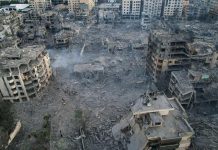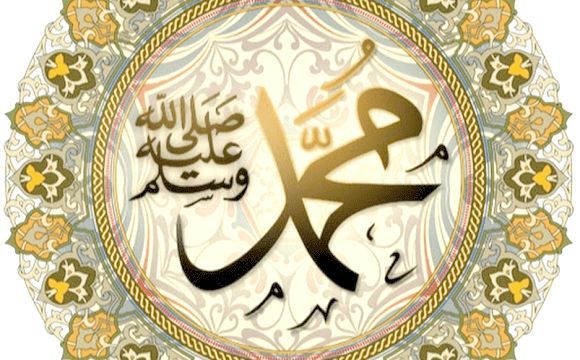The clock tower in Makkah turned Green to welcome the Holy month of Ramadan. The crescent moon has been sighted in Saudi Arabia so the first day of Ramadan is today in Arab countries. In India, the crescent moon, too, has been sighted today, so the first day of Ramadan will be tomorrow and and Taraweeh (prayers performed by Muslims at night after the Isha prayer during the first part of the night, organized in congregational manner during the holy month of Ramadan) will be starting from tonight. The month of Ramadan in which was revealed the Quran, a guidance for mankind and clear proofs for the guidance and the Criterion (between right and wrong).
Ramadan is the ninth month of the Islamic calendar. The calendar is based on the movement of the moon. Ramazan is without doubt the most sacred of all the months. It is the Islamic month of fasting, in which participating Muslims refrain from eating, drinking from dawn until sunset. The holy month of Ramadan is marked by social and religious gatherings where Muslim families and friends unite to break their fast together, after sunset during iftar or before dawn during suhour.
Moreover, Ramazan is the name of the whole month during which Muslims practice fasting, one of the five pillars of Islam, a binding duty for every Muslim observant. Ramadan had been the name of the ninth month in Arabian culture long before the arrival of Islam. In the Qur’an it is said that “fasting has been written down (as obligatory) upon you, as it was upon those before you” which is a reference to the Jewish practice of fasting on Yom Kippur. Fasting is meant to teach the Muslim patience, modesty and spirituality. The fasting of Ramadan is only for them who bring faith in Islam. It’s one of the important principles of Islam after Shadaat and Salah (Namaz).
Furthermore, most crucial part is that we have to help the poor and needy across the world this Ramadan by providing iftar meals, food kits, water, medical aid, cooked food and so on. Most importantly the Ramadan has a huge social relevance. An important goal is to establish an empathy with the poor, to understand their suffering and help them with donations (in a covered way without showing it off).
Fasting is seen as a physical and mental purification process in order to have some rest for your body and peace for your mind after finding yourself at dinner table with family and friends. We must also fast spiritually; we must not swear or get angry, we should not have sexual intercourse during the fasting hours, all aimed to achieve a state of total peace. It’s a highly prestigious activity for Muslims and an effective getaway to get closer to Allah. Let’s try our best to spend this month with self-restraint and pray for each others.
Health benefits of fasting in Ramadan
Experts have found that restricting food can help prevent a selection of health problems. Fasting can help prevent high cholesterol, heart disease, obesity and improve mental health as well. It is high time to detox and clean our immune system and to empty the stomach to feed our soul as well.
Coronavirus lockdown and Ramadan
As the holy month of Ramadan begins, the Islamic world is grappling with an untimely paradox of the new coronavirus pandemic: enforced separation at a time when socialising is almost sacred. The holiest month in the Islamic calendar is one of family and togetherness – community, reflection, charity and prayer. Saudi Arabia urged Muslims not to gather for prayers or socialise because of the rising number of coronavirus cases in the Gulf region. When the faithful give special attention to those who may be adversely affected while distributing their sadaqat or zakah during this Ramadan, consider the physical distancing measures in place.
A 16-point guideline as a fatwa has been issued by the Darul Uloom Deoband in view of the month of Ramadan amid coronavirus lockdown. Darul Uloom’s Mohatmim (vice-chancellor) Mufti Abul Qasim Nomani has said that only those who have been appointed for prayers in the mosques on the permission of the district administration should perform Taraweeh while others should perform the Taraweeh inside their houses (The Statesman reported).
May Allah make this month beneficial for us all, may Allah accept our fasts and good deeds, and May Allah allow us to change ourselves for the better in this blessed month and continuing on from it. Let’s follow Prophet Mohammad (pbuh) teaching to spread peace, love, kindness, compassion and piety.
Amir Sajid, Writer is an Engineer and Congress (INC, Main Opposition Political Party in India) worker. Views are personal

















